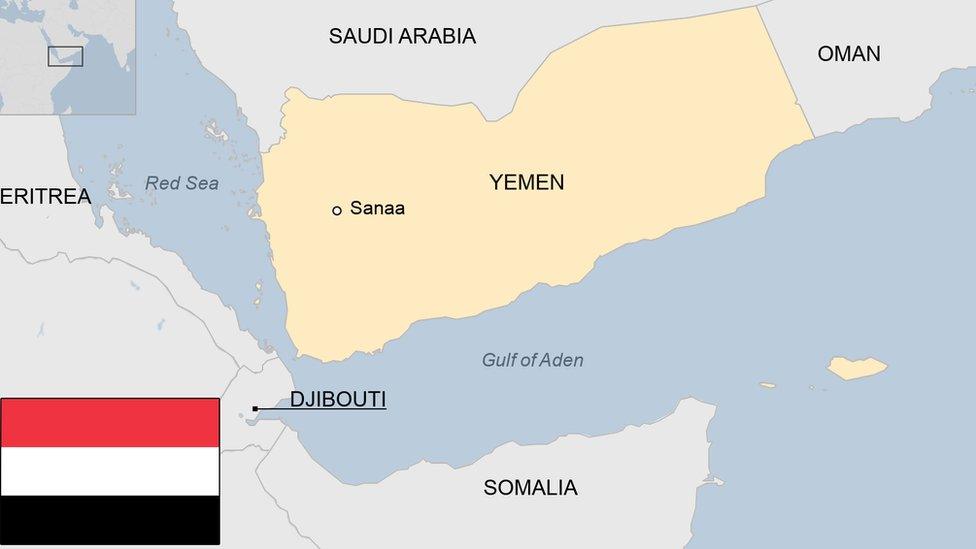Yemen war: Deadly 'air strike' near hospital in rebel-held port
- Published
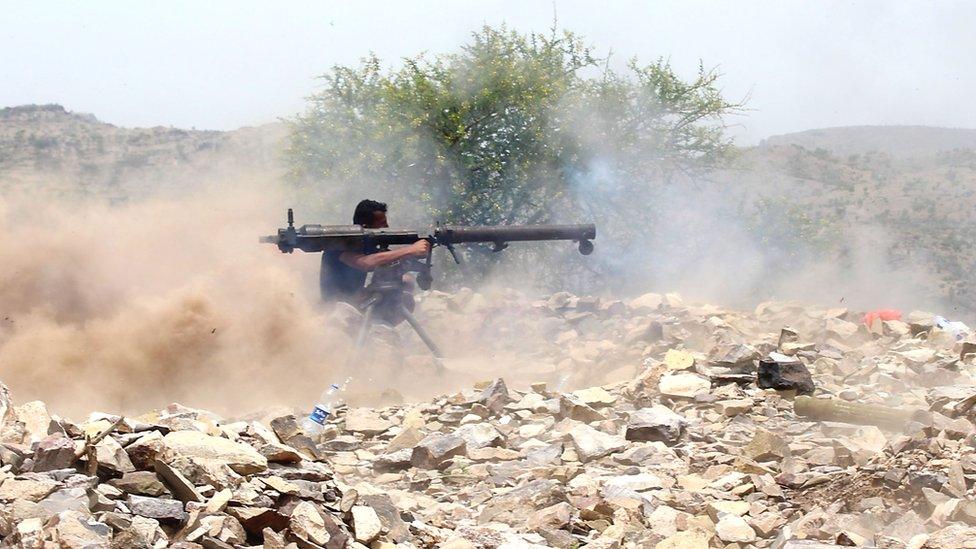
Pro-government forces recently launched a major offensive against Houthi rebels in Yemen
At least 20 people in the rebel-held Yemeni port city of Hudaydah have been killed in air strikes blamed on the Saudi-led coalition.
The strikes hit a fish market and the entrance to a nearby hospital, eyewitnesses and medics said.
However a Saudi spokesman said the coalition had not flown over Hudaydah,, external blaming the attack on rebels instead.
Six weeks ago, the Saudi-led coalition launched a major offensive to drive Houthi rebels out of the city.
Aid agencies have previously warned that any disruption to vital supplies coming through the key Red Sea port could affect millions of Yemenis, who rely on them to survive.
The Red Cross tweeted that it was sending medical supplies, external to help treat those severely wounded in Thursday's attack.
Among those killed or injured in Thursday's strikes were local fishermen who were attending the market on the sea front.
Eyewitnesses described seeing debris and two damaged ambulances close to a local hospital.
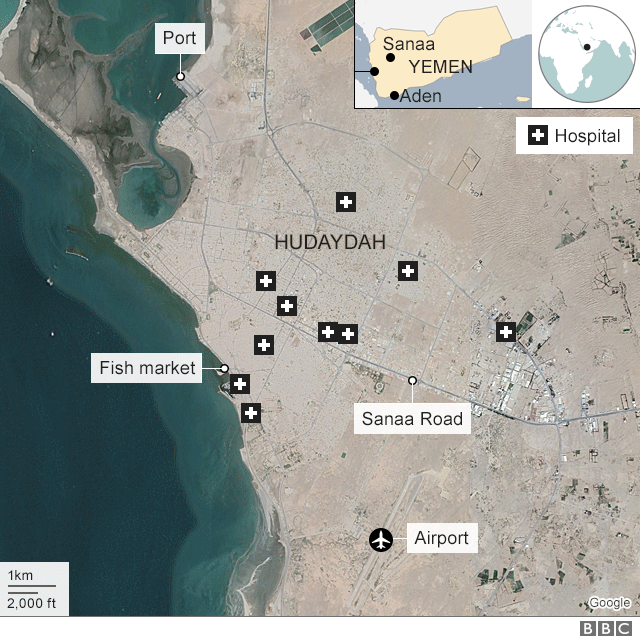

"The number of people killed in the two attacks has reached 20," a doctor at Hudaydah's main al-Thawra hospital told AFP news agency, adding that at least 60 people had been admitted with injuries.
Allow X content?
This article contains content provided by X. We ask for your permission before anything is loaded, as they may be using cookies and other technologies. You may want to read X’s cookie policy, external and privacy policy, external before accepting. To view this content choose ‘accept and continue’.

Other reports put the death toll higher.
For a little more than three years, Yemen has been locked in a seemingly intractable civil war that has killed nearly 10,000 people - two-thirds of them civilians - and pushed millions to the brink of starvation, according to the United Nations.
Fighting began in 2014 when the Houthi Shia Muslim rebel movement took advantage of President Abdrabbuh Mansour Hadi's weakness and seized control of northern Saada province and neighbouring areas. The Houthis went on to take the capital Sanaa, forcing Mr Hadi into exile in Saudi Arabia.
The conflict escalated dramatically in March 2015, when Saudi Arabia and eight other mostly Sunni Arab states - backed by the US, UK, and France - began air strikes against the Houthis, with the declared aim of restoring Mr Hadi's government.
Speaking to the BBC last month, Mr Hadi said that military intervention by the Saudi-led coalition had gone on longer than expected, but said that the alternative option was far worse.
- Published17 July 2018
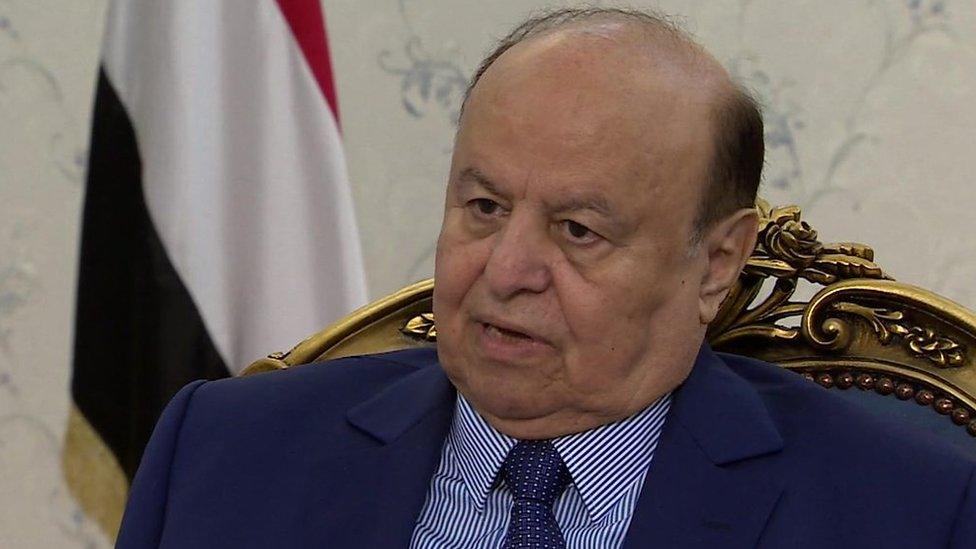
- Published14 June 2018
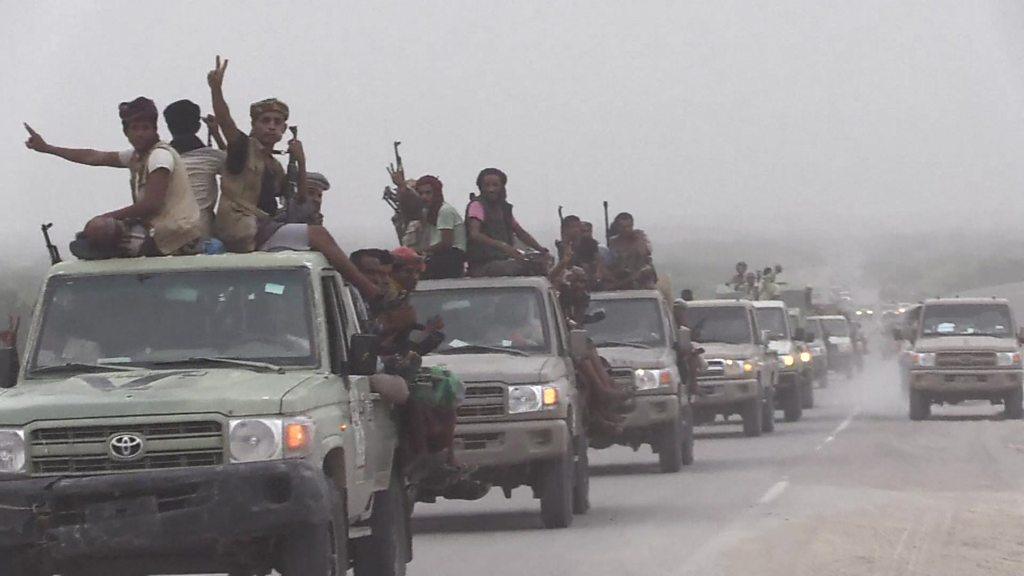
- Published18 July 2018
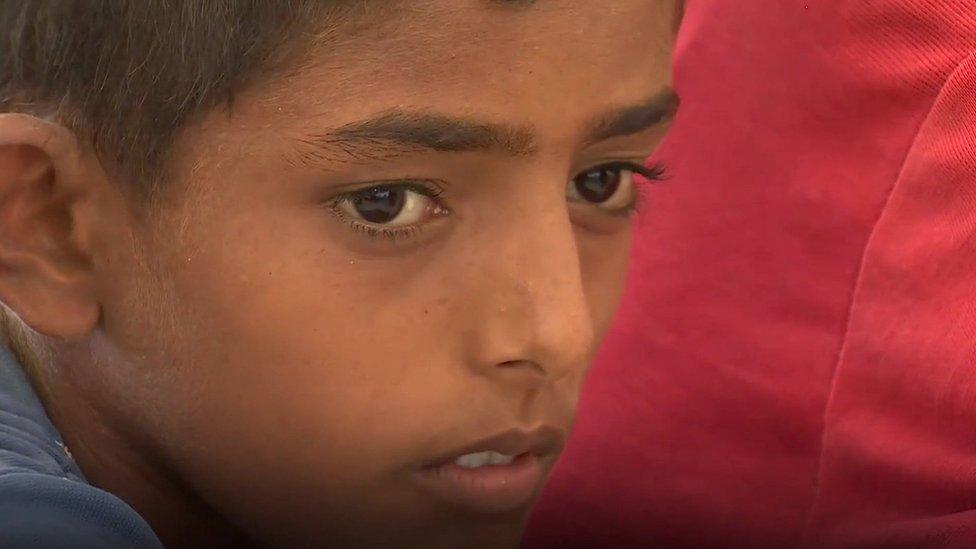
- Published20 June 2018
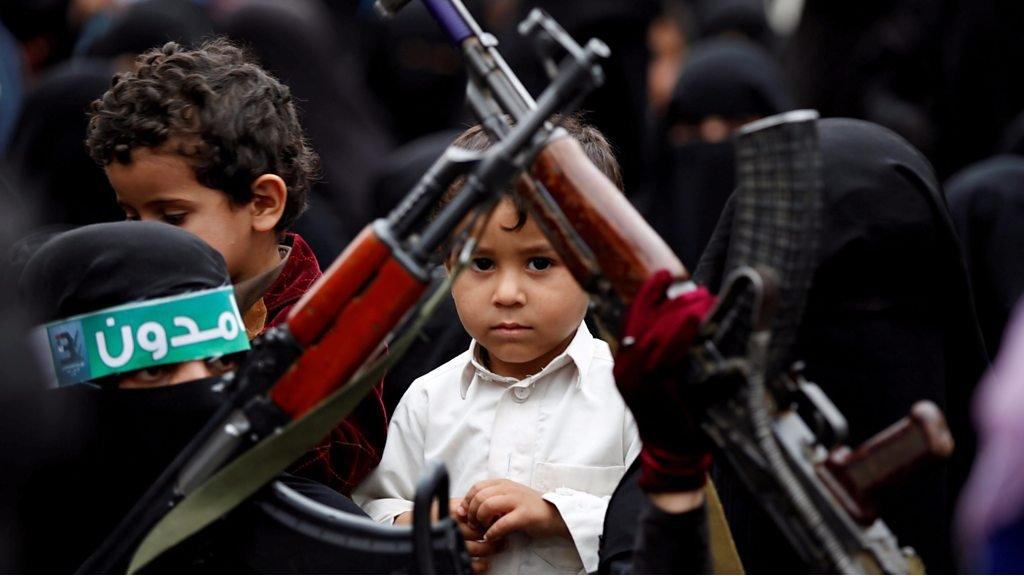
- Published13 February 2024
